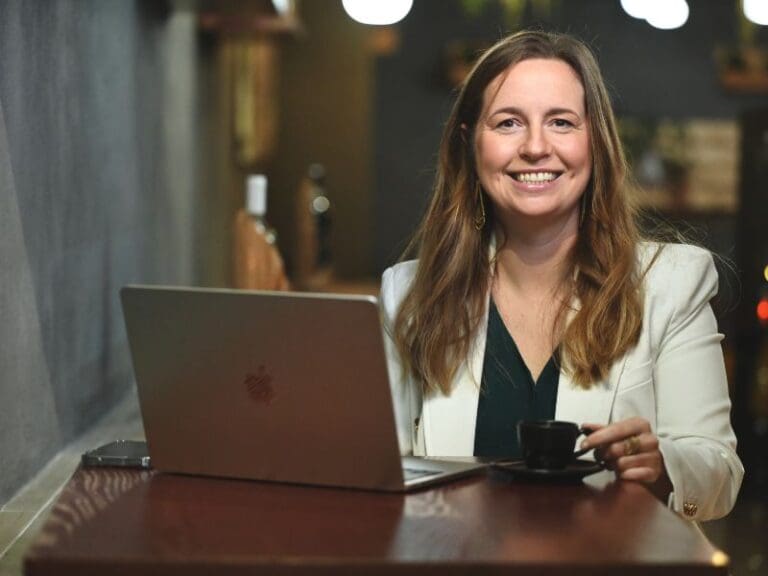Julie oversees the team responsible for the company’s internal data insights. Julie brings more than two decades of experience working with data across a variety of industries.
HOW DID YOU LAND YOUR CURRENT ROLE? WAS IT PLANNED?
I’ve never really planned any of my career moves, they’ve happened more organically. I actually was a customer before I transitioned into my current role at Alation – I believed in the product so much that I was eager to work for the company. Of course, some people are wired differently and actively think about their career three or four steps ahead; there’s no right way to approach finding a new role. I just went with what felt right at the time.
WHAT ARE THE KEY ROLES IN YOUR FIELD OF WORK, AND WHY DID YOU CHOOSE YOUR CURRENT EXPERTISE?
There are quite a few key roles in the data space, from those on the ground like data analysts and data engineers, to data governance leads and Chief Data Officers. Whilst they all require slightly different skills, there are a number I think work for any role in the data field: obviously you have to enjoy working with data, but it’s also important to enjoy making connections with people and developing those relationships. Data needs people, so if you’re going to get the most out of your data products, you need to be able to connect with the people who will be using them day-to-day.
DID YOU (OR DO YOU) HAVE A ROLE MODEL IN TECH OR BUSINESS IN GENERAL?
I’ve always tried to mirror the qualities of the managers I’ve looked up to, but one person who has always been a bit of a role model for me is Dame Stephanie Shirley, who founded Xansa, the British outsourcing and technology company. Her presentation at Women in Data a few years ago was entirely without ego. It was calm and articulate, and told us all about her inspiring life story. She always just wanted to do the right thing and I found that very inspirational!
WHAT ARE YOU MOST PROUD OF IN YOUR CAREER, SO FAR?
I’m actually really proud that I’ve made it to a stage in my career where people are asking me for advice. Data is such a fantastic space to work in, and there is a really positive community of peers who just want to help data professionals get to where they want to be.
Once you’re in a position to give back to that community, paying it forward is one of the best feelings.
WHAT DOES AN AVERAGE WORK DAY LOOK LIKE FOR YOU?
No two days are the same in data. That said, the international nature of data means that an average day needs to be flexible, especially when you’re managing a remote team based in different parts of the world. A typical day can be logging-on in the morning to have a meeting with my team in India, chatting with European colleagues throughout the day and then connecting with US based clients in the late afternoon to early evening. As for the kind of work I perform, well one of the things I love about my role is how varied it is. One minute I can be speaking to the marketing department about their data needs, the next I am deep diving into product usage data modelling and then reviewing training materials to help data enablement.
ARE THERE ANY SPECIFIC SKILLS OR TRAITS THAT YOU NOTICE COMPANIES LOOK FOR WHEN YOU’RE SEARCHING FOR ROLES IN YOUR FIELD?
Hard skills such as understanding databases and SQL will always be needed in data roles, but it’s the soft skills that could really make you stand out to a company hiring. Having a level of empathy which allows you to understand the challenges and opportunities the business has with its data is a real asset. For the more senior data roles, it’s critical for businesses that you can tell a story and explain the power of data to other parts of the organisation; the ability to communicate effectively and make data accessible are now musts when going for jobs in the data industry. This is how you build a data culture with your organisation.
HAS ANYONE EVER TRIED TO STOP YOU FROM LEARNING AND DEVELOPING IN YOUR PROFESSIONAL LIFE, OR HAVE YOU FOUND THE TECH SECTOR SUPPORTIVE?
The tech sector is so incredibly supportive and welcoming, particularly these days when there are a range of networks and resources that you can tap into. Platforms like Women in Data are invaluable to those either starting out their career or looking to make the next big step as they can help you both to build your network of contacts and gain insights from your peers.
Don’t ever let anyone stop you from learning or taking the next step in your career.
HAVE YOU EVER FACED INSECURITIES AND ANXIETIES DURING YOUR CAREER, AND HOW DID YOU OVERCOME THEM?
Definitely, who hasn’t. When I found the term imposter syndrome I felt as if someone had finally put a label on it. I suspect most people will face that sort of anxiety in their career in data, so it’s really important to use the community of peers to ask for guidance and support – often, just knowing that others have been through exactly the same insecurities about not being good enough or fitting in can help you to gain an important sense of perspective. I now have a fantastic group of people who I know can go to for a confidence boost or indeed to ground me in reality.
ENTERING THE WORLD OF WORK CAN BE DAUNTING. DO YOU HAVE ANY WORDS OF ADVICE FOR ANYONE FEELING OVERWHELMED?
Try to reach out to someone you feel comfortable with and talk through any concerns. This doesn’t have to be a manager, it could be a friend who has an outside perspective. Just going through the process of verbalising your worries always seems to bring some sense of clarity and most of the time through simply listening to yourself, you realise that things are not as bad as they may have seemed.
WHAT ADVICE WOULD YOU GIVE OTHER WOMEN WANTING TO REACH THEIR CAREER GOALS IN TECHNOLOGY?
Always try to do the right thing, be true to yourself and not try to fit into some mould or persona just because you think it is expected of you. Being able to be yourself removes all manner of concerns.
Build up your confidence by developing a positive network around you who can reinforce how capable you are.
Realise that you can’t be all things to everybody, you have to understand how to have some balance with all of the roles in your life.








